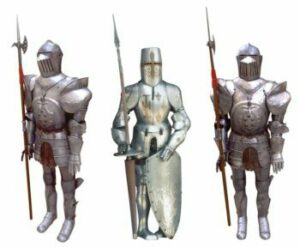Category: Translated
-

Solteros in Spanish
How to say solteros in Spanish? ¿Cómo se dice solteros en inglés? Solteros in English translation: singles. singles – solteros(masc.), solteras(fem.) single – soltero (masc.). soltera(fem.), solo, único, individual, simple Sentences with the word solteros in Spanish El hotel es adecuado para familias, parejas, solteros y grupos. – The hotel is suitable for families,…
-

Vencidas in Spanish
How to say vencidas in Spanish? ¿Cómo se dice vencidas en inglés? Vencidas in English translation: overdue, overcome, beat, expire. (vencer) Sentences with the word vencidas in Spanish Las dificultades pueden ser vencidas. – Difficulties can be overcome. No podemos darnos por vencidas. – We cannot give up. Pero pueden y deben ser vencidas.…
-

Taladro in Spanish
How to say taladro in Spanish? ¿Cómo se dice taladro en inglés? Taladro in English translation: drill. Sentences with the word taladro in Spanish Siempre pone el taladro a esta hora. – He always puts the drill at this time. No molestes con el taladro. – Don’t bother with the drill. Tiene que usar…
-

Carrocería in Spanish
How to say carrocería in Spanish? ¿Cómo se dice carrocería en inglés? Carrocería in English translation: bodywork. Sentences with the word carrocería in Spanish El tiene la carrocería rota. – He has a broken body. Mañana voy a arreglar la carrocería. – Tomorrow I’m going to fix the bodywork. No me hables de la…
-

Ay Papi in Spanish
How to say ay papi in Spanish? ¿Cómo se dice ay papi en inglés? Ay papi in English translation: oh daddy. “Ay Papi” is a Spanish phrase that is often used to express affection or attraction towards someone, especially among Latin American cultures. The phrase can be translated to English as “Oh Daddy” or “Oh…
-

Dónde Viven in Spanish
How to say dónde viven in Spanish? ¿Cómo se dice dónde viven en inglés? Dónde viven in English translation: where do they live. Sentences with the phrase dónde viven in Spanish Y las personas de aquí, ¿dónde viven? – And the people here, where do they live? ¿Sabes dónde viven sus padres? – Do…
-

Hoy Va a Llover in Spanish
How to say hoy va a llover in Spanish? ¿Cómo se dice hoy va a llover en inglés?. It’s going to rain today in Spanish translation: hoy va a llover. Sentences with the phrase va a llover in Spanish Date prisa, que va a llover ahora. – Hurry up, it’s going to rain now.…
-

Indirectamente in Spanish
How to say indirectamente in Spanish? ¿Cómo se dice indirectamente en inglés? Indirectamente in English translation: indirectly. Sentences with the word indirectamente in Spanish Pero indirectamente hay algo más. – But indirectly there is something else. Muchas personas me han ayudado con este libro directa o indirectamente. – Many people have helped me with this…
-

Discúlpame in Spanish
How to say discúlpame in Spanish? ¿Cómo se dice discúlpame en inglés? Discúlpame in English translation: forgive me, excuse me. Sentences with the word discúlpame in Spanish Discúlpame por decir esto. – Excuse me for saying this. Pero discúlpame si me preparo para lo peor. – But excuse me if I prepare for the…
-

Escuda in Spanish
How to say escuda in Spanish? ¿Cómo se dice escuda en inglés? Escuda in English translation: shield, to hide. shield, to hide – escuda (escudar), esconder shield – escudo (noun) Sentences with the word escuda in Spanish Él se escuda constantemente detrás de este argumento. – He constantly hides behind this argument. ¿Por qué…
-

Cómo se llama in Spanish
How to say cómo se llama in Spanish? ¿Cómo se dice cómo se llama en inglés? Cómo se llama in English translation: what’s it called, as it is called. Sentences with the phrase cómo se llama in Spanish ¿Cómo se llama tu primo? – What is your cousins name? ¿Por qué todo el mundo…
-

How Do You Say Cousin in Spanish?
How to say cousin in Spanish? The Spanish word for cousin is “primo” (male) or “prima” (female). This word is widely used in the Spanish-speaking world to refer to a relative who is the child of one’s aunt or uncle. The word “primo” is derived from the Latin word “primus”, which means “first” or “primary”.…